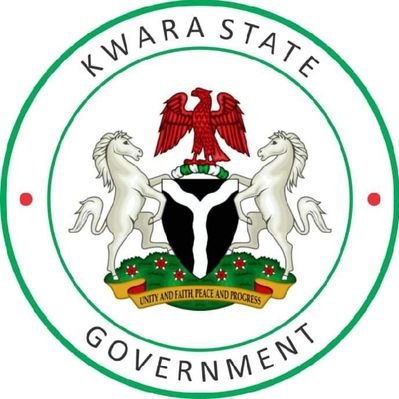EMMANUEL PETER ADAYEHI

The escalating tensions between the Alliance of Sahel States (AES) countries, comprising Mali, Burkina Faso, and Niger, and the Economic Community of West African States (ECOWAS) require careful diplomatic handling to prevent further instability in the region.
Background
In January 2024, Mali, Burkina Faso, and Niger announced their withdrawal from ECOWAS, citing concerns over the regional body’s handling of their situations following military coups in these countries. This move led to the formation of the AES, a security partnership aimed at addressing extremist violence in the Sahel region ¹.
Key Issues
– Regional Instability: The withdrawal of AES countries from ECOWAS poses significant challenges to regional integration, economic cooperation, and democratic governance.
– Security Concerns: The Sahel region is plagued by extremist violence, poverty, and other challenges, which the AES aims to address through a joint force of 5,000 personnel.
– Economic Implications: The split between ECOWAS and AES countries may lead to strained economic and diplomatic ties, potentially affecting trade and investment in the region.
Potential Consequences
– Humanitarian Crisis: The situation could exacerbate the humanitarian crisis in the region, affecting millions of people.
– Increased External Influence: The fragmentation of regional blocs may create opportunities for external powers to exert influence in the region.
Way Forward
To mitigate these risks, ECOWAS and AES countries should prioritize diplomatic dialogue and cooperation. Potential steps include ¹ ²:
– Establishing a Common Parliament: Fostering regional cooperation through a joint parliament to promote mutual understanding and decision-making.
– Implementing Judicial Cooperation: Establishing a regional criminal court to address terrorism, violent extremism, and human rights violations.
– Developing a Joint Military Force: Collaborating on a regional military force to combat Islamist groups and promote peace and security.
Ultimately, the situation demands careful consideration and diplomatic finesse to prevent catastrophic consequences and promote peace, stability, and prosperity in the region.
The escalating tensions between the Economic Community of West African States (ECOWAS) and the Alliance of Sahel States (AES) countries, comprising Mali, Burkina Faso, and Niger, pose significant risks to regional stability and humanitarian conditions.
Risks of Escalation:
– Regional Instability: Further instability and conflict in the Sahel region, which is already struggling with terrorism, poverty, and other challenges. This instability could lead to increased security vulnerabilities, weakened regional cooperation mechanisms, and potential spillover effects on neighboring countries.
– Humanitarian Crisis: Economic sanctions and potential military intervention could worsen the humanitarian crisis, compromising the well-being of millions. The region is already grappling with acute malnutrition, with almost 17 million children under five suffering from malnutrition. The crisis could lead to increased food insecurity, displacement, and human suffering.
– Impact on Regional Integration: Tensions between ECOWAS and AES countries may undermine regional integration efforts and cooperation on trade, security, and infrastructure development. This could disrupt trade flows, financial transactions, and the movement of people, posing significant challenges for regional cooperation and development ¹ ².
Potential Consequences:
– Disrupted Trade Flows: The AES countries’ departure from ECOWAS could lead to increased tariffs, disrupting trade flows and economic cooperation between the AES countries and ECOWAS member states.
– Increased Costs: Landlocked AES countries may face increased costs due to loss of coastal port access, affecting their economic viability and potentially exacerbating poverty and food insecurity.
– Weakened Regional Cooperation: The split could weaken regional cooperation mechanisms, including security cooperation, and potentially create new security challenges in the region ¹.
To move forward, ECOWAS and AES countries can consider the following steps:
Potential Steps for Cooperation
– Establish a Common Parliament: Foster regional cooperation through a joint parliament to promote mutual understanding and decision-making. This can help address common challenges and promote regional integration.
– Implement Judicial Cooperation: Establish a regional criminal court to address terrorism, violent extremism, and human rights violations. This can enhance cooperation on security issues and promote justice.
– Develop a Joint Military Force: Collaborate on a regional military force to combat Islamist groups and promote peace and security. This can help address the growing threat of terrorism in the region.
– Intelligence-Sharing Channels: Set up and maintain intelligence-sharing channels to enhance cooperation on security issues.
Prioritizing Citizens’ Interests
The West Africa Democracy Solidarity Network (WADEMOS Network) urges ECOWAS and AES countries to prioritize citizens’ interests and regional security in post-exit dialogue. They recommend ¹:
– Inclusive Solutions: Prioritize inclusive solutions that benefit millions of citizens in the region.
– Comprehensive Review: Undertake a comprehensive review of ECOWAS’s revised treaty and organs to align strategically with the current context.
– Citizen Engagement: Engage citizens in the decision-making process to guarantee solutions that truly benefit the population.
Regional Integration
Regional integration is essential for addressing common challenges and promoting peace and security. ECOWAS and AES countries should work together to ² ³:
– Promote Economic Integration: Enhance economic integration by exploring possibilities for a common currency or trade agreements.
– Address Security Challenges: Collaborate on security issues, such as terrorism and violent extremism, to promote peace and stability.
– Foster Dialogue: Sustain and promote dialogue and negotiation to resolve issues and build trust.
Investing in skills development can unlock opportunities for the ECOWAS subregion. Here are some key areas to focus on:
Skills Development Areas
– Digital Skills: Developing digital skills can drive economic growth, innovation, and entrepreneurship. This can be achieved through initiatives like online training platforms, coding boot camps, and digital literacy programs.
– Project Management: Building project management capabilities can enhance regional development and economic prosperity. This can be done through training programs, certifications, and mentorship initiatives.
– Product and Service Marketing: Promoting local products and services can help the region tell its own story and reduce reliance on foreign goods. This can be achieved through targeted marketing campaigns, branding initiatives, and support for local businesses.
– Social Media Management: Leveraging social media can amplify regional voices, promote businesses, and build global connections. This can be done by creating engaging content, managing social media accounts, and utilizing online platforms to reach a wider audience.
Benefits of Skills Development
– Economic Growth: Skills development can drive economic growth by enhancing productivity, innovation, and entrepreneurship.
– Regional Development: Building skills can enhance regional development and economic prosperity by equipping individuals with the knowledge and expertise needed to drive growth.
– Global Competitiveness: Developing skills can help the ECOWAS subregion become more competitive in the global economy by promoting innovation, entrepreneurship, and trade.
## Implementation Strategies
– Partnerships: Collaborate with local and international organizations to develop and implement skills development programs.
– Training Programs: Develop and implement training programs that focus on digital skills, project management, product and service marketing, and social media management.
– Mentorship Initiatives: Establish mentorship initiatives to support individuals in developing their skills and expertise.
– Infrastructure Development: Invest in infrastructure development, such as digital infrastructure, to support skills development and economic growth.
To resolve the tensions between ECOWAS and AES countries, prioritizing dialogue and cooperation is key. By working together, the region can unlock its potential and drive economic growth. Investing in skills development can empower individuals and communities, promoting peace and prosperity. Here are some potential strategies:
– Skills Development Areas:
– Digital Skills: Developing digital skills can drive economic growth, innovation, and entrepreneurship. This can be achieved through online training platforms, coding boot camps, and digital literacy programs.
– Project Management: Building project management capabilities can enhance regional development and economic prosperity. This can be done through training programs, certifications, and mentorship initiatives.
– Product and Service Marketing: Promoting local products and services can help the region tell its own story and reduce reliance on foreign goods. This can be achieved through targeted marketing campaigns, branding initiatives, and support for local businesses.
– Social Media Management: Leveraging social media can amplify regional voices, promote businesses, and build global connections.
Organizations like Impact 360 Foundation, SIILC, and ZamZam Foundation are already working on similar initiatives, providing skill development programs in areas like ¹ ² ³:
– Vocational Skills Training: Providing training in technical and soft skills to enhance employability.
– Entrepreneurship Development: Equipping individuals with the knowledge and resources to start and manage their own businesses.
– Digital Literacy: Teaching essential computer literacy and tech skills to bridge the digital divide.
By investing in skills development and promoting cooperation, ECOWAS and AES countries can work towards a brighter future for West Africa.







